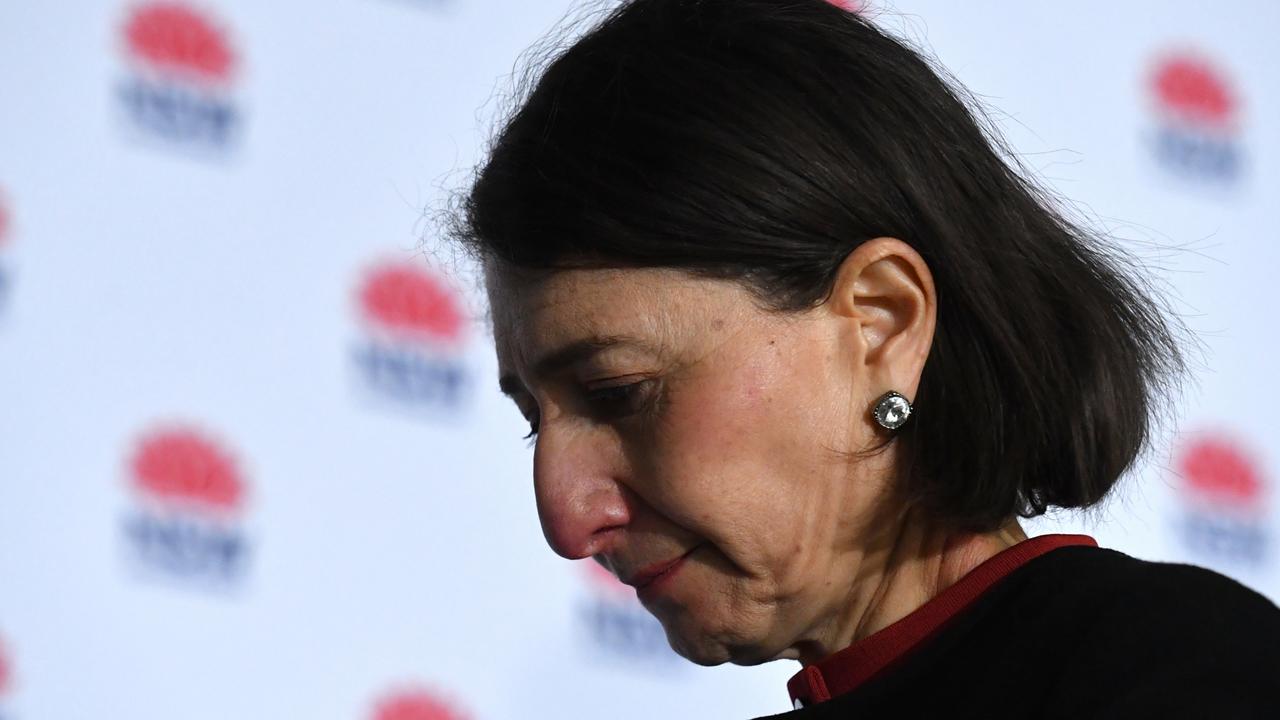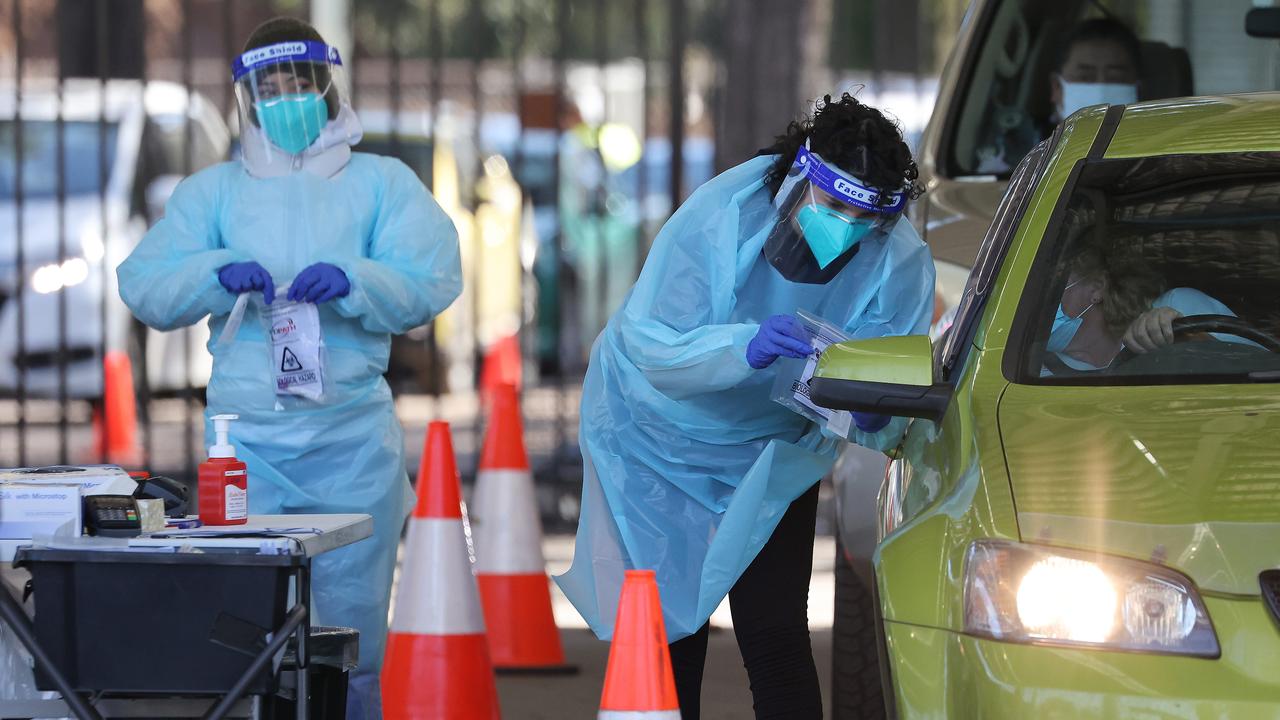NSW’s Covid-19 spike of 110 cases is ‘not good news’ for state’s recovery
NSW’s jump in covid cases has set back the state’s recovery and tougher restrictions may be needed to get the outbreak under control.
Despite being in lockdown for more than three weeks, NSW’s coronavirus cases numbers are not looking good with another 110 cases announced on Wednesday.
Of particular concern are the continuing high numbers of cases who have been infectious while in the community.
On Wednesday, NSW authorities revealed up to 73 cases among the 110 had been infectious while in the community, although this included 17 who were partly in isolation and 13 cases still under investigation.
University of NSW Professor Mary-Louise McLaws, who is an adviser to the World Health Organisation, said even if the 13 cases under investigation all turned out to be isolating, it still meant that 54 per cent of cases had not been isolating.
“Whether that’s 54 per cent partially isolating or not at all isolating, it’s still much too high,” she told news.com.au.
Prof McLaws said NSW should have seen an improvement in its cases numbers by now given the shorter incubation period for the Delta variant, and what appears to be a shorter infectious period.
“We would have expected (the lockdown) to have a much faster positive response,” she said.
She said the case numbers of those infectious in the community on Wednesday would impact the outbreak’s averages.
“It’s an uptick on a single day, and over the seven-day rolling average,” she said.
“Either way it’s not good news.”
Prof McLaws said her analysis had been showing a potential downward trend and she thought the state had been heading in the right direction.
“We were on a great track but we’ve now hopped off that great track,” she said.
“We’re back to holding our breath again and hoping that we’ll get back on track.”
RELATED: PM’s vaccine ‘failure’ torn to pieces

Prof McLaws said the figures indicated that some time between July 15-18 there had been behaviours that had put people at risk.
“Something is going on with their behaviour that’s just not safe,” she said.
However, Prof McLaws said it could also be a reflection of new rules requiring people in the Fairfield local government area to get tested every three days.
NSW Premier Gladys Berejiklian announced the tough new testing rules on Tuesday, July 13 and it sparked a rush of people lining up for testing in Fairfield. She later said the testing requirement would not come into effect until Saturday, July 17.
“What we’re potentially seeing is the response to people putting off testing once authorities gave them more lead-in time,” Prof McLaws said.
Tougher restrictions that could be introduced
Prof McLaws said there were some tougher restrictions that could be brought in if cases remained stubbornly high.
This included a curfew in hot spot areas, a restriction that Victoria introduced during its second lockdown last year.
“A curfew reminds people that we’re in dire straits and we can’t go out and you are less likely to have people not abiding by the rules, and that’s why Victoria brought in curfews,” she said.
She also believes that take-home covid tests could also be introduced, particularly in workplaces, so that people could be tested for covid at home or at work and get a result on the spot.
RELATED: Father of removalists tests positive to covid

Prof McLaws said some of these tests had an accuracy of 99.96 per cent when testing people in the first five to seven days of their infection, before they got symptoms.
“They stop being accurate when people become symptomatic,” she said.
She said the UK had used these tests and made them available at pharmacies, libraries and other spaces.
If home and work testing, as well as curfews were brought in, Prof McLaws believes this should be enough to bring cases down.
However, she said it was unclear what enforcement measures authorities were taking to monitor families who were supposed to be at home, and there may be a need for fines for those who weren’t doing the right thing.
“In Victoria they would ring them up on a random basis to ensure people were there and if they didn’t answer police would go around,” Prof McLaws said.
“Sadly there’s always a proportion of the community who think they’re not at risk and therefore the rules don’t apply to them.
“But I don’t know how many times they need to be told that this is to protect them, as well as anyone else around them.
“This variant is breaking all the rules that we used to know. It doesn’t need 15 seconds or to be within 1.5 metres of someone.”
Prof McLaws pointed out that those who get infected at the Melbourne Cricket Ground (MCG) weren’t even sitting near each other.
“In the UK, it’s been found with Delta you are twice as likely to get hospitalised than with Alpha. That should be a horror story but some people think they are invincible.”
Sydneysiders ‘must do better’
The NSW Premier was asked whether an even tougher lockdown could be imposed but told reporters on Wednesday: “it’s really important for us not to talk about what might happen”.
She said once authorities had data from this coming weekend and possibly early next week, which would show the impact of tougher restrictions imposed from Sunday, they would be able to have a better sense of what July 31 looked like.
When asked where she was saying there was a chance lockdown would be lifted at the end of next week, she said: “No, what I am saying is we will consider what restrictions can be eased from July 31 based on the health advice we have at that time. That is it.”
Ms Berejiklian has told Sydneysiders they must “do better’ to help bring down case numbers and warned residents not to leave their homes unless absolutely necessary, even if they do not have symptoms.
“You might not have any symptoms and not know you have the virus and still be infectious,” she said.
Forty-three of the new cases were infectious while in the community, sparking fears and frustrations that people don’t understand the rules.
While the Premier acknowledged most of the infectious people who were out and about in the community were not doing the wrong thing given they did not have symptoms, she said people should be limiting their movements regardless.
“We have done incredibly well in keeping the numbers where they are, but we need to do better in order to live more freely,” Ms Berejiklian said.
“That’s why we’re just asking everybody to please respect the rules in place.”




